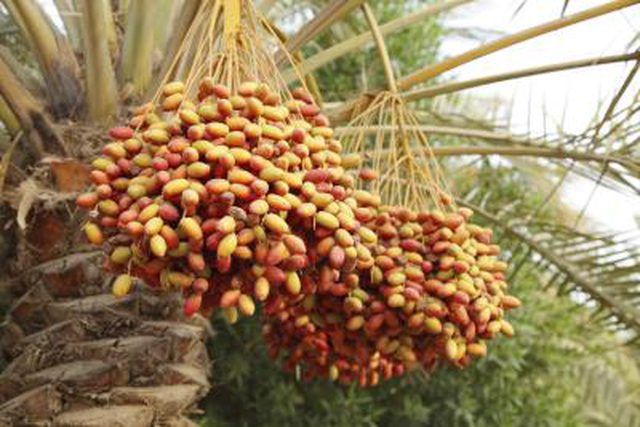Bulbs
Flower Basics
Flower Beds & Specialty Gardens
Flower Garden
Garden Furniture
Garden Gnomes
Garden Seeds
Garden Sheds
Garden Statues
Garden Tools & Supplies
Gardening Basics
Green & Organic
Groundcovers & Vines
Growing Annuals
Growing Basil
Growing Beans
Growing Berries
Growing Blueberries
Growing Cactus
Growing Corn
Growing Cotton
Growing Edibles
Growing Flowers
Growing Garlic
Growing Grapes
Growing Grass
Growing Herbs
Growing Jasmine
Growing Mint
Growing Mushrooms
Orchids
Growing Peanuts
Growing Perennials
Growing Plants
Growing Rosemary
Growing Roses
Growing Strawberries
Growing Sunflowers
Growing Thyme
Growing Tomatoes
Growing Tulips
Growing Vegetables
Herb Basics
Herb Garden
Indoor Growing
Landscaping Basics
Landscaping Patios
Landscaping Plants
Landscaping Shrubs
Landscaping Trees
Landscaping Walks & Pathways
Lawn Basics
Lawn Maintenance
Lawn Mowers
Lawn Ornaments
Lawn Planting
Lawn Tools
Outdoor Growing
Overall Landscape Planning
Pests, Weeds & Problems
Plant Basics
Rock Garden
Rose Garden
Shrubs
Soil
Specialty Gardens
Trees
Vegetable Garden
Yard Maintenance
How to Grow Date Trees From a Seed
How to Grow Date Trees From a Seed. With their tasty fruit and stately growth habit, date palm trees (Phoenix dactylifera) have a long history. They thrive in hot, dry climates in U.S. Department of Agriculture plant hardiness zones 9 through 11, where they add a tropical look to a yard. Date palms grow readily from seed gathered and started in...

With their tasty fruit and stately growth habit, date palm trees (Phoenix dactylifera) have a long history. They thrive in hot, dry climates in U.S. Department of Agriculture plant hardiness zones 9 through 11, where they add a tropical look to a yard. Date palms grow readily from seed gathered and started in spring, but the resulting trees mature slowly and may take six to 10 years to bear fruit.
Collect and Prepare the Date
Date palm seeds stay viable for months but will germinate most reliably when sown immediately after being removed from the fruit. The cylindrical, grooved seeds slip easily from the fruit, but they must be soaked in hot water for 24 hours to dissolve any residue left by the flesh. Stored or commercially sold seeds require a lengthier soaking to soften their seed coat and ease germination. Soak them for two to five days, changing the water daily to prevent bacterial growth on the seed. Give the seeds a final rinse after their soak, then blot them dry on a piece of paper towel before sowing.
Get Sowing
Date palm seeds need a balance of moisture and air to germinate. Use a porous, sterile medium such as a mixture of 3 parts milled coir and 1 part coarse sand or perlite. Fill a 4-inch pot with the mixture, leaving the top 1 inch empty. Use a pot with a drainage hole. Date palm seeds sprout from the tip and must be positioned horizontally so their roots and shoot can develop correctly. Lay two seeds on the surface of the mixture, 1/2 inch apart, and press them into soil until they are halfway buried. Cover them with a 1/2-inch-thick layer of perlite or coarse sand, then water them until the excess water trickles from the pot's drainage holes.
Sprouting Conditions
Date palm seeds need warmth and consistent, light moisture to germinate. Light does not play a key role in germination, so the seeds can be started indoors where the moisture level and temperature can be more easily controlled. Maintain soil temperatures between 70 and 75 degrees Fahrenheit by placing the pot on a propagation mat or in a naturally warm spot, such on top of the refrigerator. The growing medium may dry out quickly at these temperatures, so check it daily. Water the date palm seeds whenever the soil feels nearly dry just beneath the surface. Most date palm seeds will germinate in one to two months, although some may sprout in two weeks.
Seedling Care
Under natural conditions, date palm seedlings become established under the shade of their parent tree where they are sheltered from temperature extremes and direct sun. Mimicking their natural establishment phase will give them a good start in life, which will help ensure their long-term health and vitality. Once the seeds germinate, transplant the date palm seedlings into 8-inch pots filled with palm-formula potting soil. Grow them in a bright, sheltered spot, providing 1 inch of water weekly during the summer. Slowly acclimate them to direct sun in fall of their first year. Transplant them into a sunny, fast-draining bed in spring of their third year.
Considerations
Date palm seeds have an equal chance of producing a male or female tree. Both are required to produce fruit, but the female trees are more desirable both for their fruit-bearing capabilities and for their lack of pollen. Many people are allergic to the pollen, making the male trees a poor choice for your yard. It is virtually impossible to differentiate between male and female date palm seedlings, so propagating them from seed is a gamble. For that reason, most date palms sold at nurseries are propagated vegetatively from female trees so the sex is known.